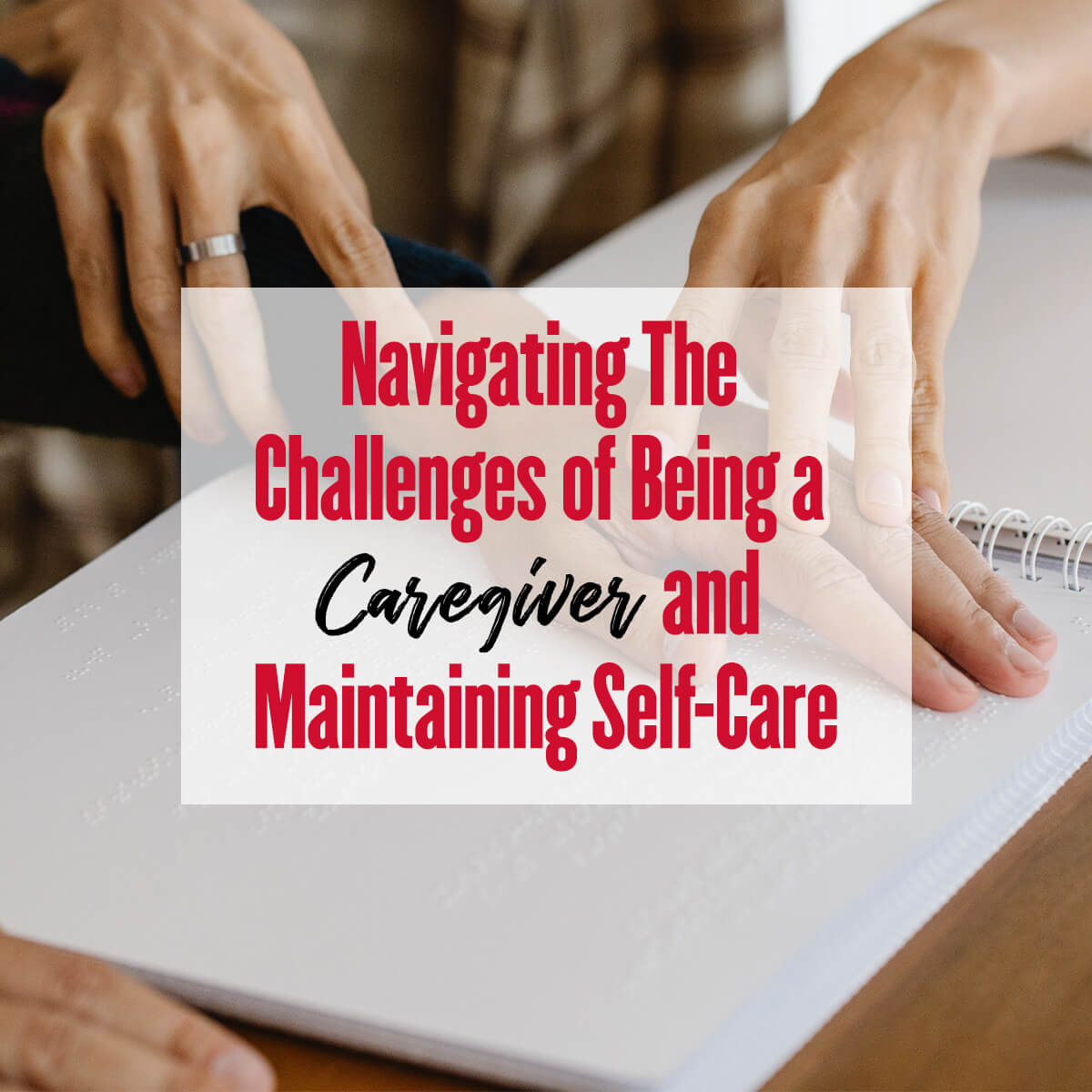
Navigating The Challenges of Being a Caregiver and Maintaining Self-Care
Jason Nista
Healthy Lifestyle
|
Mental Health
7 minute read
Navigating The Challenges of Being a Caregiver and Maintaining Self-Care
If you’ve ever been a caregiver for a loved one, then you know how challenging it can be. It’s hard enough to juggle being a good caretaker with taking care of yourself. That’s why self-care while fulfilling caregiving responsibilities is so important.
It takes an incredible amount of strength and determination to be a caregiver. You may find yourself trying to navigate multiple roles: attending hospital check-ups and appointments, managing medications, arranging home services, and more - on top of your everyday responsibilities.
It can feel overwhelming trying to balance all these tasks - and that’s why it’s essential to practice self-care. In this article, we’ll discuss the importance of prioritizing self-care while fulfilling caregiving responsibilities and offer some tips on how to achieve balance in your own life.
What Does Self-Care for Caregivers Look Like?
Being a caregiver is no easy feat. You’ve got an endless list of responsibilities and tasks to complete, and on top of everything, you need to make sure that you’re still taking care of yourself. It may seem like a daunting task, but here are a few tips for helping you prioritize self-care even when caring for someone else:
-
Break down your goals: Instead of trying to tackle everything at once, break down your goals into manageable portions. This can help make your list more manageable and give you the satisfaction of accomplishing small goals more frequently.
-
Take mental breaks: We all need breaks from the chaos of everyday life. Make sure that you’re taking the time for yourself to relax and unwind. Whether it’s reading a book, having some “me time” or simply taking a few minutes to sit and breathe, these activities can help reset your mind and recharge your body.
-
Try mindfulness practices: Caregiving can be emotionally draining at times—take some time for mindful practices like meditation, yoga, or even just five minutes of mindful breathing each day. These activities can help you manage stress, reduce anxiety and find inner peace.
How to Create a Self-Care Routine
We know that life as a caregiver is challenging and filled with stress. That's why it's so important to make the effort to prioritize self-care. This doesn't mean that you should neglect your duties as a caregiver, but taking some time to take care of yourself is essential in order to stay healthy and grounded.
You can start by creating a dedicated self-care routine. Here are some tips on how to do so:
-
Start by envisioning your ideal day, then break down the elements into manageable tasks and activities that you can do.
-
Make sure to include something for each area of well-being: physical, mental, emotional, and spiritual.
-
Schedule time for yourself each day – even if it’s just 10 minutes – and commit to your routine as much as possible.
-
Have a plan for when you’re feeling overwhelmed or overworked; take a break from the caregiving tasks and focus on yourself first.
-
Don’t forget to practice self-compassion which is key to forming positive habits and finding balance in life.
By following these steps, you will be able to make space in your day for activities that nourish, restore, energize, and bring joy into your life!
Developing Strategies to Manage Stress and Fatigue
Caregiving can be pretty demanding, and it's common to feel overwhelmed. It's important to take care of yourself and make sure you're not taking on too much. Here are some strategies that can help you manage the stress of caregiving:
Practice self-compassion
As a caregiver, you may become so immersed in caring for the loved one that you neglect to take time for yourself. You're doing an incredibly important job, so give yourself credit and recognize the demands of caregiving. Talk to other caregivers who have been in similar situations - it's likely they have wonderful tips and advice.
Make time for rest
Fatigue is one of the primary issues associated with caregiving, so make sure you're getting enough sleep each night — at least 8 hours if possible — to recharge your batteries. It's also a good idea to break up tasks throughout the day instead of trying to do too much at once. Schedule breaks and prioritize activities that relax you like reading or even just closing your eyes for a few minutes.
Get organized
Keeping track of medical information, doctor appointments, prescription refills, and bills can be exhausting. Use organizational tools like a spreadsheet or calendar to help keep everything straight. You can also investigate if there are any local support groups or other organizations that can provide assistance with tasks such as meal delivery services or transportation services.
Remember: it's okay if things don't go perfectly all the time! Have patience with yourself and develop ways to manage stress — it will make the journey easier for both you and your loved one.
Tips for Calming the Mind Through Meditation
It’s no secret that being a caregiver is absolutely exhausting, both physically and mentally. It’s important to your mental and physical health to find ways to take a break from the intensity of caregiving responsibility. That’s why meditation can be incredibly helpful. Meditation provides time for yourself to practice self-care, calm your mind and relax, without feeling like you are neglecting your role as a caregiver.
Here are some tips for calming your mind through meditation:
Establish a routine
Creating and establishing a simple meditation routine is an effective way of creating consistency in meditating regularly. Setting up an easy reminder every day ensures that you won’t forget, and you can always adjust the amount of time you spend meditating depending on how much free time you have.
Find peace in stillness
Give yourself permission to take some time off from being a caregiver and focus on being in the present moment. Not worrying about the past or future but rather coming back to your breath and just being with what is right now. This will help put things in perspective, allowing you to make decisions with greater clarity while also allowing peace of mind and relaxation.
Be compassionate with yourself
Your thoughts may drift during meditation but that’s okay! Don’t judge yourself or give too much attention when this happens—just be gentle with yourself and return to focus on your breath again without any harsh judgments or criticism. As long as you practice even for just a few moments each day, it will pay off tremendously in the end!
Caregiving is a selfless and rewarding experience, but it can feel overwhelming and draining at times. The key is to recognize that you can't do it all on your own, and it’s okay to ask for help. Self-care is just as important as caregiving, and it’s essential to make sure you are prioritizing your own well-being.
As you continue to provide care, it’s essential that you take care of your nutrition as it could prove vital for your physical as well as mental health. Clean Eatz Kitchen brings you a huge variety of some of the best diet plans to keep you energized and motivated at all times.
Summary Of Navigating the Challenges of Being a Caregiver and Maintaining Self-Care
-
To ensure self-care as a caregiver, you need to break down your goals, take frequent mental breaks, and perform mindful practices
-
You need to create a dedicated self-care routine to make sure that you don’t neglect yourself in the process of being a caregiver
-
To manage the stress and fatigue associated with caregiving, you need to practice self-compassion, take time for rest, and stay organized
-
Meditation is a great technique to calm your mind as a caregiver
Related Articles
How To Manage Insomnia And Other Sleep Disorders
6 minute read
How to Lose Water Weight
10 minute read



